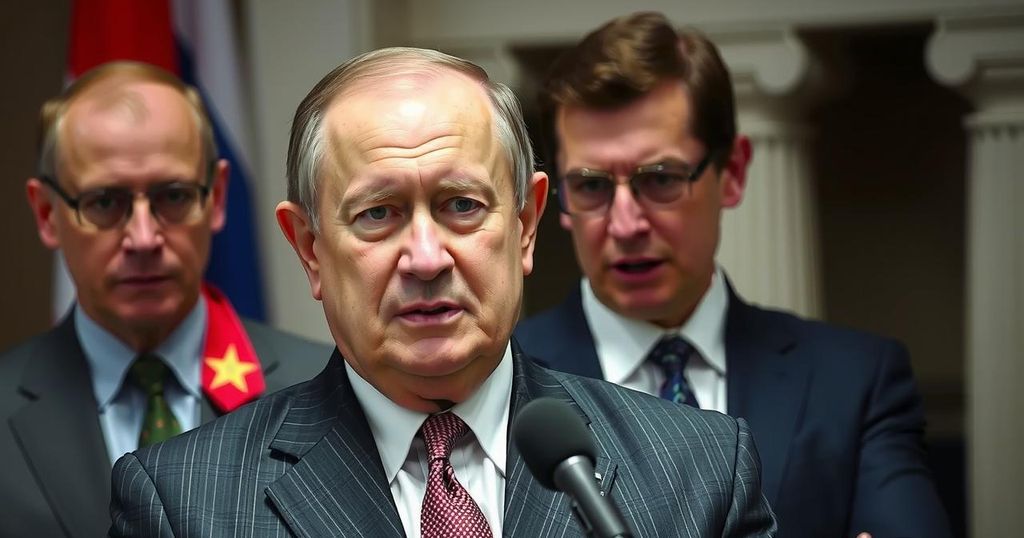The Fall of Assad: A Major Setback for Russian Prestige in Syria
Bashar al-Assad’s recent ousting in Syria represents a significant defeat for Russia, undermining its strategic objectives in the Middle East. The Kremlin’s military support for Assad has unraveled, resulting in a crisis of prestige for Moscow. As Russia grants asylum to Assad in light of his downfall, questions loom over the future of its military bases in Syria, while state media divert blame towards the Syrian military’s failure.
The recent escalation in Syria has culminated in a significant downfall for Bashar al-Assad, previously supported by Russian military strength over nearly a decade. In the wake of Assad’s reported flight to Moscow following the fall of Damascus, Russian state media disclosed the Kremlin’s decision to grant asylum to Assad and his family. This shift signals a rapid disintegration of Russia’s strategic involvement in Syria, eliciting grave concerns from the Kremlin as it witnesses its geopolitical ambitions unravel before its eyes.
Since 2015, Russia’s military intervention aimed to bolster Assad’s regime, establishing Russia as a formidable power on the global stage, separate from Western influence. Vladimir Putin’s declaration of a successful mission during a 2017 visit to the Hmeimim air base appeared to solidify this narrative. Russia had also gained crucial access to military facilities in Syria, increasing its strategic foothold in the eastern Mediterranean, yet now faces uncertainty regarding the future of these bases in light of the regime’s collapse.
The Kremlin’s official stance reflects concern for the security of its military assets, as Russian military bases have been placed on high alert. Official reports claim that there currently exists no serious threat to these bases. Russian news outlets have begun shifting responsibility for the regime’s failure, suggesting issues within the Syrian military rather than highlighting the broader implications for Moscow. Furthermore, amidst these developments, Russian state media emphasized alternative priorities, particularly the ongoing conflict in Ukraine, illustrating a shift in focus from Syria’s dynamics to Russia’s internal security measures.
The backdrop of this situation is rooted in Russia’s long-term military and political support for Bashar al-Assad’s government in Syria, which began in 2015. The Russian intervention was promoted as a means to counterbalance Western influence in the region and assert Russia’s power on the global stage. By securing military bases in Syria, Russia not only reinforced Assad’s regime but also established an important logistical route for its military operations elsewhere. However, the dramatic turn of events in Syria, marked by the fall of the Assad regime, threatens this strategic foothold and the prestige that Moscow sought to consolidate through its military engagement.
In conclusion, the toppling of Bashar al-Assad represents a critical setback for Russia, which had invested heavily in maintaining his regime as a bulwark against Western dominance. The Kremlin’s failure to prevent this outcome raises fundamental questions about its influence in the Middle East and highlights the vulnerabilities of its geopolitical strategies. As Russia navigates this unforeseen challenge, the emphasis on prioritizing domestic security regarding its ongoing operations in Ukraine underscores a substantial recalibration of its strategic focus.
Original Source: www.bbc.co.uk




Post Comment